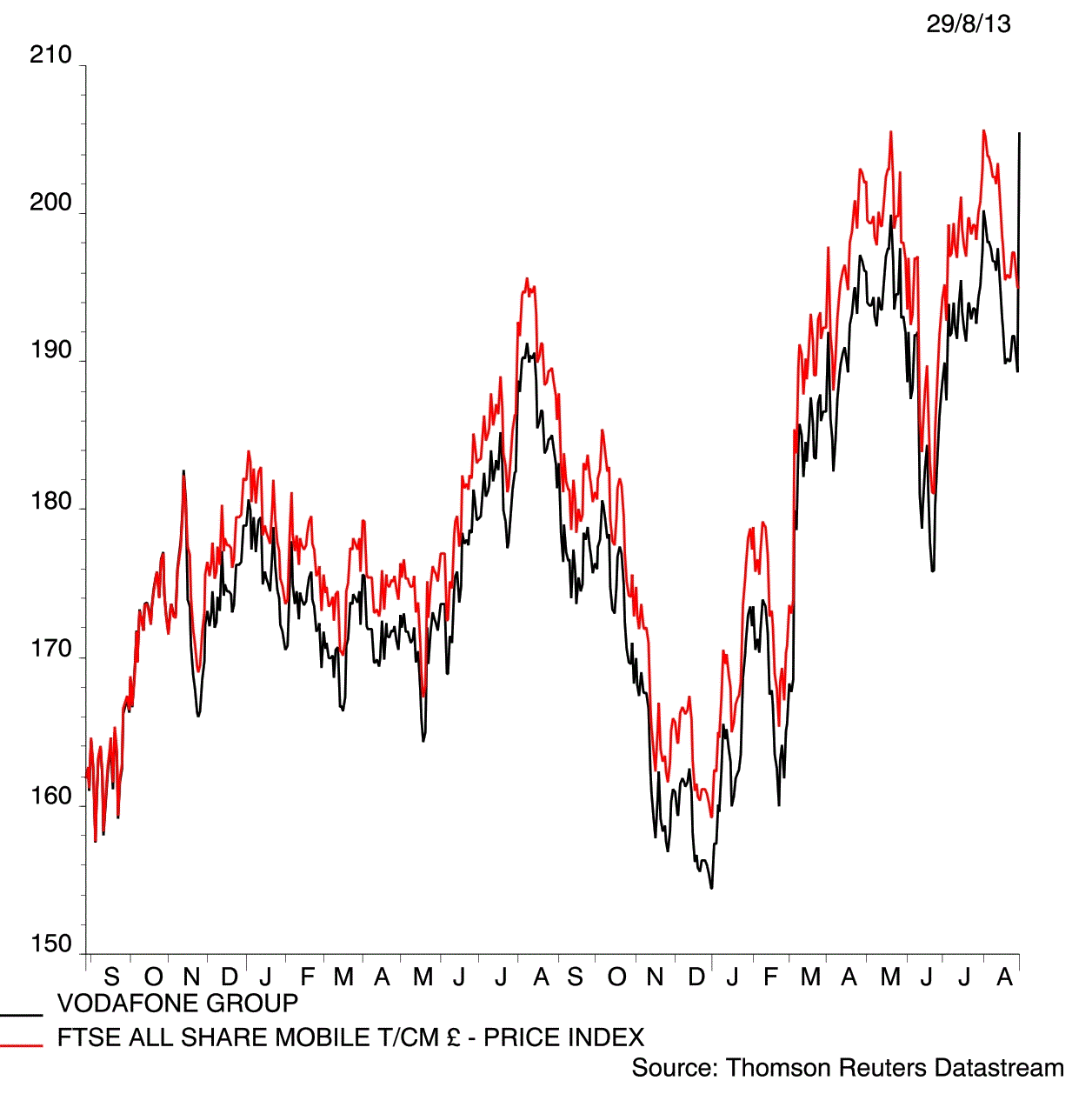So the curtain is about to go up on the long-mooted production of The Merchant of Newbury. There'll be no Shylock, just a legion of investors rubbing their hands together with greedy glee in anticipation of a huge cash windfall from Vodafone (VOD).
Now that the UK mobile giant has confirmed talks about selling its 45% stake in US mobile network operator Verizon Wireless (as Shares flagged first in March, and again in today's new magazine, published before the news announcement) to 55% stakeholder Verizon Communications (VN:NYSE), we can get down to the brass tacks of how much money might be put on the table, and how Vodafone might spend it.
Numbers crunched by analysts at Liberum Capital calculate Vodafone's Verizon Wireless stake at 155p per share, a staggering 76% of the group's £100 billion market value, after today's 8% share price jump to 205p. We've seen other analysts punt even more eye-watering valuations.
Espirito Santo number crunchers in May flagged a £195 billion overall value for the US mobile firm, implying a close on £88 billion Vodafone stake, or 180p per share.
Vodafone can scarcely afford to ignore investment in its European heartland, where new spectrum licences need to be bought. Market gossips are already speculating, with a takeover of US cable and media group Liberty Global (LBTYA:NDQ) an early target contender despite its own recent £15 billion buy of UK cable group Virgin Media. Such a deal would make some sense, at a stroke giving Vodafone a full quad-play (home phone, mobile, broadband, TV) suite while also lending some invaluable backhaul capacity (cable infrastructure) as data demand soars.
Of course, things are seldom straight-forward when this sort of dosh is at stake. For one, there's a likely hefty capital gains tax bill that could cost Vodafone anywhere from £20 billion to £35 billion, depending on which analyst you believe.
Vodafone shareholders will expect a cash return, and a big one. So the most likely outcome seems a hybrid one, where it invests a chunk of the cash into infrastructure, new spectrum and acquisitions, while still lavishing a hefty windfall to shareholders. That will come as a relief for investors in a stock that has, until recently, traded sideways for more than two years.
Investors could cash in now, sell in the open market and avoid any potential pitfalls until we know more, therefore circumventing any potential share price slump if Verizon Wireless talks collapse, or any other ill-received news. But there's a good chance that pulling off a favourable deal will convince the market that Vodafone is not just a dowdy income-paying utility, but a cash-generative business with real growth prospects in Europe and elsewhere, all at a bargain price.




